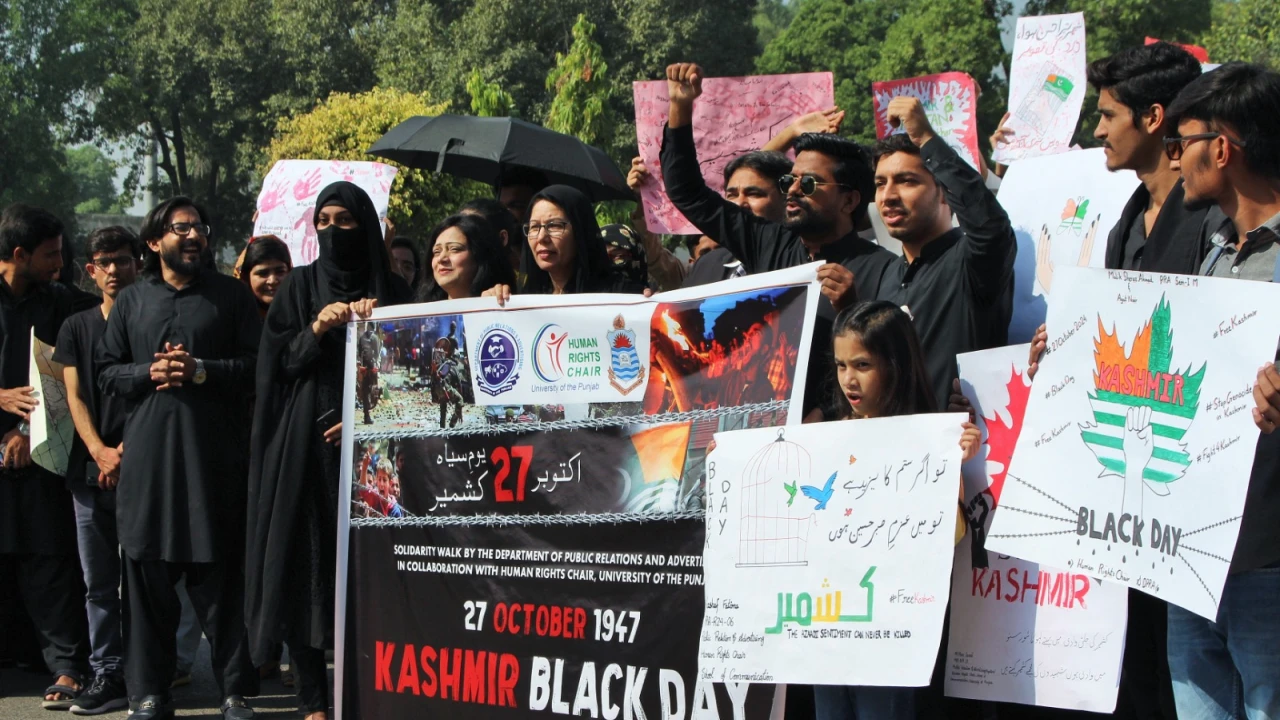Report: Muhammad Adeel
SRINAGAR: For Kashmiris, October 27 is remembered as the darkest day in history, marking the day India forcibly occupied Kashmir through deceitful means—a control that has intensified over the past 77 years. Yet, it is clear to India and the international community that Kashmiris will fiercely defend their homeland. Throughout these decades, they have steadfastly resisted oppression, remaining committed to their struggle for freedom despite significant sacrifices.
These sentiments were echoed at a gathering organized by the Jammu and Kashmir Community Overseas (JKCO) in Jeddah, which commemorated October 27 as Black Day. The event was led by JKCO Acting Chairman Engineer Muhammad Arif Mughal, with Pakistan’s Consul General Khalid Majeed as the guest of honor and Raja Shamroz as the host.
Opening the discussion, JKCO Vice Chairman Sardar Ashfaq Khan provided historical context on the 1947 occupation, underscoring the significance of this day. Speakers highlighted the ongoing human rights violations by India in Kashmir for over seven decades, raising concerns about the global community’s indifference. They questioned how India, which claims to be the world’s largest democracy, can continue to deny basic human rights to Kashmiris. This narrative of democracy is exposed as a facade, as the oppression of Kashmiris goes unchecked while human rights advocates remain silent.
The gathering noted that since August 2019, Kashmir has been under an almost continuous curfew, with residents enduring extreme hardships merely for asserting their right to self-determination—a right long promised but neglected by the international community. Despite the suffering, global leaders appear more focused on exacerbating the crisis rather than alleviating it.
Kashmiris made it clear: they will not permit an easy occupation. Their resistance spans 77 years, and they remain unwavering in their pursuit of freedom, regardless of the challenges they face. Regardless of their location, Kashmiris stand united in solidarity with their oppressed counterparts, hopeful and prayerful for the success of their struggle.
Concerns were also raised regarding leadership in both Pakistan and Kashmir, with speakers emphasizing the need for stronger support for the Kashmiri cause. They highlighted that a stable Pakistan is essential for resolving the Kashmir issue, and the Pakistani people have consistently backed their Kashmiri brothers and sisters. Pakistan’s role in advocating for Kashmir must be unwavering, ensuring the region’s representation in all relevant discussions.
Pakistan has always provided political, diplomatic, and moral support to Kashmiris and will continue to do so until their right to self-determination is realized.
Other distinguished speakers included former Federal Minister Chaudhry Shehbaz Hussain, Masood Puri, Mohsin Ghori, Waheed Khaksar, Riaz Bukhari, Fazal Abbas, and Sardar Mehtab Sarwar. They acknowledged the steadfast support from both the Pakistani and Saudi communities, as well as the Saudi royal family and the Organization of Islamic Cooperation (OIC), expressing optimism for the continuation of this support. The event attracted a large audience from both the Kashmiri and Pakistani communities.
The gathering concluded with prayers for the martyrs of Kashmir, for the region’s freedom, and for the ongoing strength of Pakistan.

